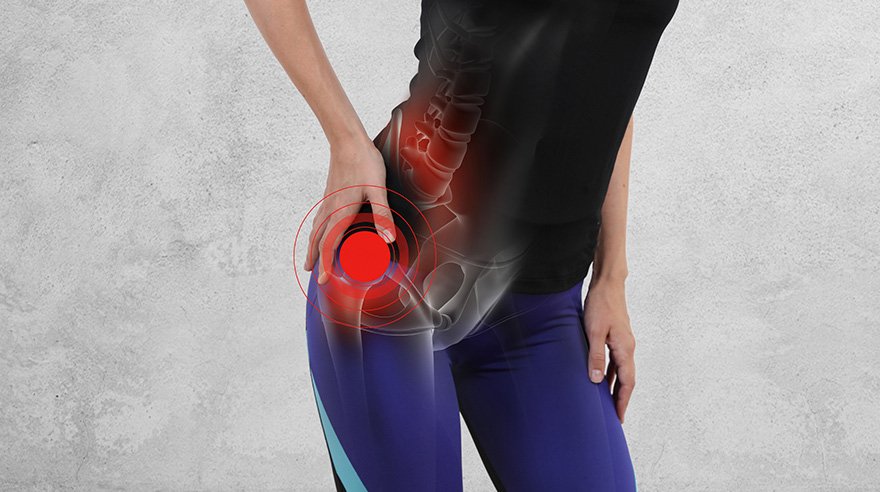“Why are My Hips So Tight?”
By: Kelsie Mazur, DPT
“My hip flexors are so tight” is one of the most common complaints of Wattage clients, gym goers, runners, and athletes that I hear as a physical therapist. If I asked a person to point to your hip muscles, most often the person will point just below the hip bone lateral to their belly button. Truth is, is the body has 21 separate muscles bilaterally that cross the hip, providing tri-planar stability and movement! WOW... So what does this mean for you?
Well, if you’ve gotten physical therapy at Wattage, you’ve probably heard me say “a tight muscle is often a weak muscle.” The hips are often a neglected or overlooked group of muscles in a training program because they’re not muscles we can really see, leading to pesky “tight” or weak feeling/sensation in the hips.
Prolonged periods of sitting, such as at a desk or in a car, can exacerbate feelings of tightness in the hips. Running without incorporating strength training can lead to hip tightness. Similarly, focusing solely on squatting during leg workouts without addressing the posterior chain (glutes and hamstrings) can also cause hip tightness. Poor recovery, (Shoutout to my sauna and cold plunge users at!!) will leave muscles overworked and without adequate rest, this too can lead to hip tightness. If you’ve been personally victimized by feeling like you have tight, pinchy hips read below...
While these factors stated above can contribute to feelings of tightness, it's essential to understand what tightness actually signifies. Similar to how pain doesn't always indicate tissue damage, tightness in the body doesn't necessarily mean restricted range of motion or actual muscle tightness. Rather, it's often a protective mechanism orchestrated by the brain (The brain is awesome!) Strengthening the muscles that feel consistently tight can help recalibrate the brain's response, reducing the sensation of tightness. Consequently, our perception and interpretation of tightness will improve.
Steps to Bulletproof Your Hips
How can you train your hips to be strong and mobile? Training the hips doesn’t have to mean a drastic change in your current programming. It could just mean adding an exercise or two here and there, varying your workouts, or extending your warmup to include a few hip focused exercises. But we want to train our hips as often as training our biceps or quads.
1. Strengthen
First and foremost, strengthening the hips is going to be the best thing you can do to get rid of that pesky pinching sensation at the front of your hips. Strengthening the hips involves prioritizing exercises such as hinging, squatting, posterior chain work, and single-leg movements. Hinging exercises, like deadlifts, Romanian deadlifts (RDLs), and good mornings, target the muscles of the posterior chain, including the hamstrings, glutes, and lower back. Squatting variations, such as goblet squats, dumbbell squats, or barbell squats, focus on developing strength in the quads, glutes, and hips. Backwards sled pulls with the resistance anchored at the hips is one of the best things you can do focusing on the posterior chain. Sled pulls allow constant resistance to the hamstrings and glutes especially as the distance you pull the sled increases your work capacity. Increased work capacity=the body’s ability to increase workload under stress=less injury to the hips
2. Work through FULL and VARIED ranges of motion
It is also important to move through funky ranges of motion that we rarely get into. This could look like duck walking, bootlegger stretch, or simply sitting in the bottom of your squat for 30s-1 min. Hip mobility exercises, like the 90/90 stretch, an elevated pigeon stretch, and an adductor rock.
In conclusion, improving the strength and mobility of our hips offers numerous advantages beyond just enhancing hip function. It can also fortify the muscles of the back and core, potentially reducing instances of back pain. Strengthening the legs through hip exercises can alleviate knee discomfort as well. Strengthening can also help desensitize our brain and body to the sensation of tightness, making us feel stronger and more mobile.
How do you know if your hips are weak? Are you experiencing pain or tightness through your low back, hips, or knees that could be attributed to hip weakness? Reach out to Kelsie Mazur today to set up a FREE consultation today to assess and strengthen those hips.

